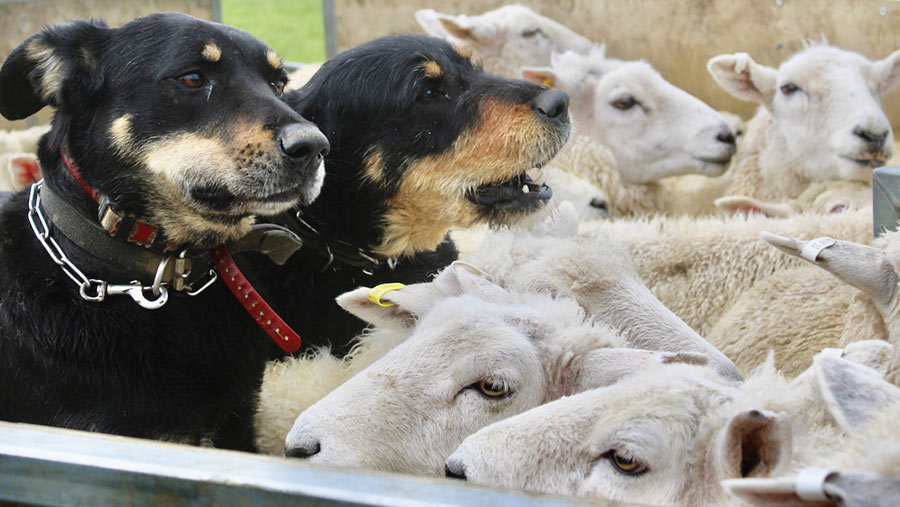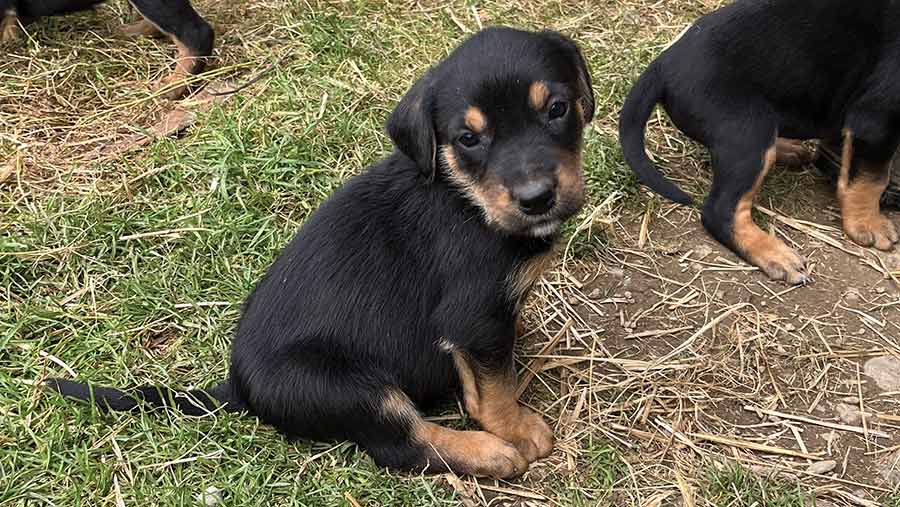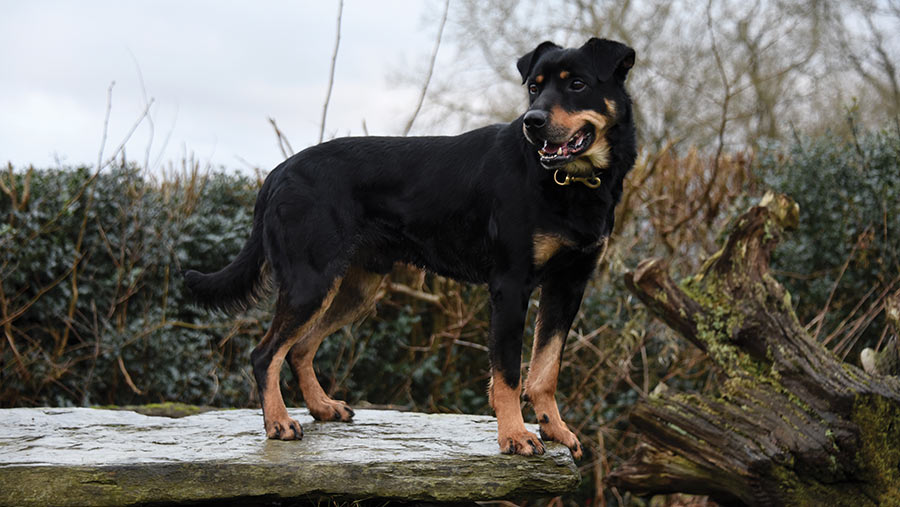Could the New Zealand Huntaway be UK farmers’ next working dog?
 © Gareth Enticott
© Gareth Enticott The border collie may well be the traditional companion for shepherds and farmers across the country, but an alternative breed of working dog is steadily growing in popularity.
Known for their black and tan coats and loud barking voices, the New Zealand Huntaway was first brought to the UK by farmer Brian Davies in 1975, after he spent time working overseas as a shearer.
Since then, the overall popularity of the working Huntaway in the UK has been largely uncharted, but a new attempt to record British bloodlines has been set in motion.
See also: Sheepdog School: Teaching a collie whistle commands
Young farmers
A recent partnership between Cardiff University and New Zealand’s University of Waikato has revealed the role that these dogs play in linking farmers in these two countries, though they are many thousands of miles apart.
Cardiff University’s Professor Gareth Enticott explains that throughout his studies, he has found one common factor among the generations of young farmers that have traveled to New Zealand to work in agriculture.
“In doing this work, I was always conscious that a lot of Welsh young farmers go over to New Zealand to do a season, get work experience, and go shearing,” he says. “Some of them stay, but a lot of them come back.
“We’re always interested in what happens when they come back. Is it a gap year, or do they bring things back that they can apply at home?
“It turns out that Huntaways are one of those things that Welsh farmers, and farmers across the country, have brought back to the UK.”
Gareth explains that there is a new generation of younger farmers, particularly in Wales, that have gone to New Zealand as a way of developing their farming skills and careers, and have subsequently become very interested in Huntaway dogs.
They have worked alongside them, and in the process, developed an enormous admiration for the breed.
What makes a Huntaway?
The question of what makes a Huntaway remains and, in New Zealand, the dogs’ looks and characteristics can vary widely. “Over here, it’s quite a traditional black and tan barking sheep dog,” says Gareth.
“The more noise a Huntaway can make, the better. During trialing in New Zealand, the first movement is for the dog to let out a huge noise to move the sheep on. They have been bred to be loud.
“They are steadier than a collie, but they have got the endurance to go all day. They are so sweet natured, and are really stoic, hardy dogs. There’s a kind of toughness to them.”

© Gareth Enticott
While the Huntaway is widely considered as New Zealand’s national dog, over time, the way they work has changed tremendously.
“There are differences between the North Island and South Island dogs. Some of those differences have developed because of the way that different breeds of sheep have been used.”
Gareth continues: “The breeding of the Romney in New Zealand is a very different sheep to the Merino, which would have traditionally been used in the South Island in the high country.
“These don’t take a lot of force, or a lot of bark, to get them moving, whereas a Romney is a stubborn sheep, so the Huntaway had to be bred to have more power and more bark, so they would look and sound slightly different.”
Huntaways in Britain
For reasons unknown, a breed association for working Huntaways has never been established in the UK, and there are no firm records to trace breeding and pedigree.
Ellis Rees and Andy Piper are on a mission to establish an official breed register – the British Working Huntaway Association.
“There is nothing for the Huntaway – there’s a breed society and stud book in New Zealand, but no form of society in the UK. So, we decided to set it up ourselves,” says Andy.
“This is for registering working Huntaways, so that, moving forwards, we will have a better understanding of the breeding history of dogs in this country.
“The more dogs that we have in the database, the better, as this will help people make better decisions about breeding, and in turn improve the breed in the UK. It is about bringing the Huntaway community together.”
After three visits to New Zealand, Mr Rees was won over by the breed, and bought the first Huntaway of his own a couple of years ago. He uses his dogs for contract shepherding on farms across mid-Wales.
“I saw how they could move a huge amount of sheep so easily, with such control, and I thought they were brilliant,” he says.
The most recent addition to his pack, an imported dog named Tone, has garnered much attention both online and among British Huntaway owners, due to his bloodlines and training.

Ellis Rees’ dog Tone © Ruth Rees Photography
“He’s got the best of New Zealand’s Huntaway bloodlines, and he’s been trained by Jeremy Berry,” Ellis explains.
As for training, he admits that it is more about shaping the Huntaway’s natural instincts. “The main command you will want to teach your dog is to be quiet,” he explains.
“You teach them ‘speak up’, which tells them to bark, but it’s good to be able to quiet them when they are away from the sheep.”
Register your dog
If you have a working Huntaway in the UK, you can register your dog with the British Working Huntaway Association using the following link signup.grassroots.co.uk
